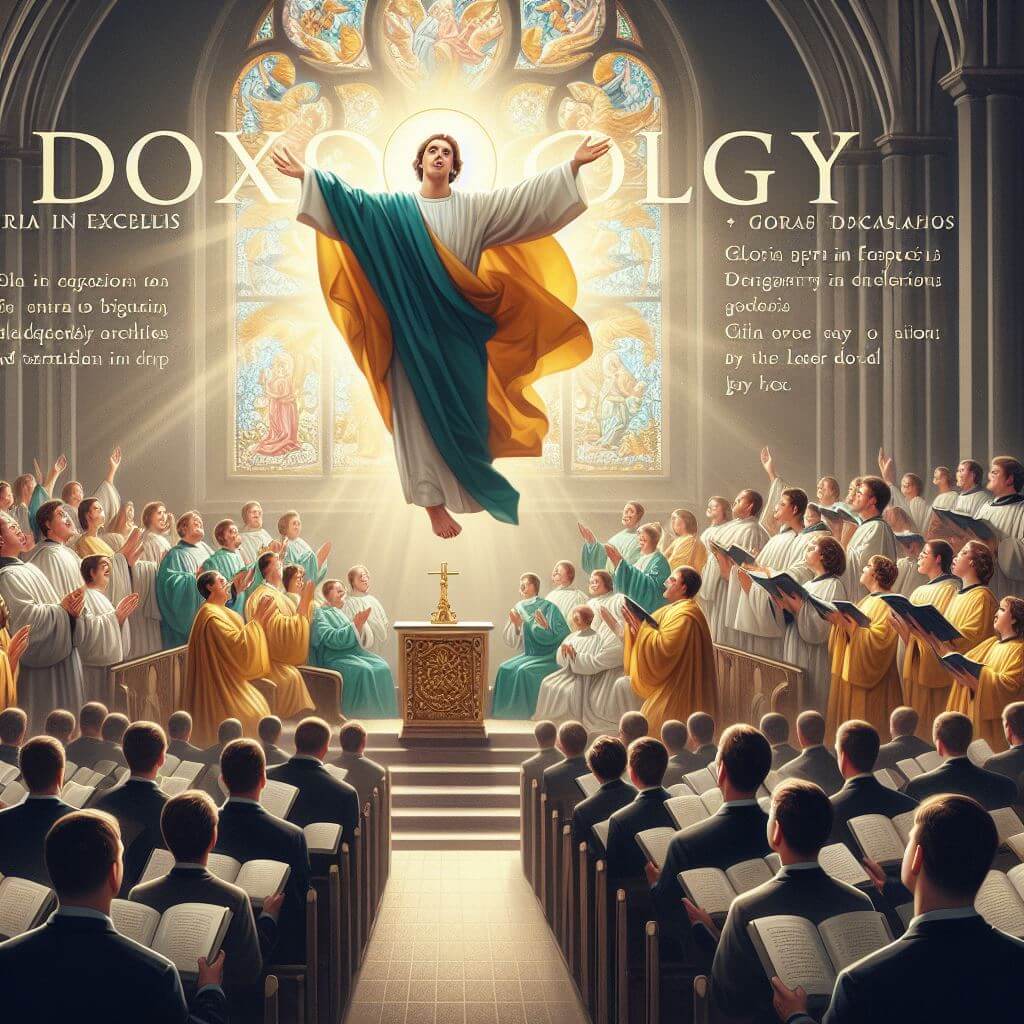Discover the essence of doxology, a form of praise expressed through hymns or formulas addressed to God in public worship. From the Gloria in excelsis to the renowned doxology by Bishop Thomas Ken, delve into the historical and spiritual aspects of these expressions of gratitude and reverence.

Doxology; a kind of hymn or formula of praise, generally brief, addressed to God in public worship. It is usually sung or chanted, but it may be said in unison by the congregation. The Gloria in excelsis is sometimes called the greater doxology; the Gloria Patri, the lesser doxology.
The Gloria in excelsis is based on the song of the angels in Luke 2:14, “Glory to God in the highest, and on earth peace, good will towards men.” It was an early 4th century Eucharistie hymn and is still sung at the beginning of the Roman and Eastern rites and read frequently in Protestant services. The usual translation begins, “Glory be to God on high.”
The Gloria Patri, “Glory be to the Father, and to the Son, and to the Holy Ghost . . . ,” is commonly added at the end of psalms, thus adapting them to Christian worship; and Christian sermons often close with a doxology.
To most Protestants, “the doxology” means the words that form the concluding stanza of two of Bishop Thomas Ken’s hymns:
Praise God, from whom all blessings flow;
Praise Him, all creatures here below;
Praise Him above, ye heavenly host;
Praise Father, Son, and Holy Ghost.

Doxologies conclude several psalms in Jewish worship and are also used to end public prayers. The Eighteen Benedictions (the shemoneh esreh) close with a berakah, or blessing, such as “Blessed art Thou, O Lord, the Shield of Abraham.”
The New Testament contains numerous examples of doxologies, such as in Romans 11:36 and 16:27, and, above all, in the early addition to the Lord’s Prayer (Matthew 6:13: “For thine is the kingdom, and the power, and the glory, for ever and ever. Amen.”) found in many good manuscripts, a sentence based on I Chronicles 29:11-13. The Book of Revelation also has passages reflecting the use of doxologies in heavenly worship, as in Revelation 4:11.